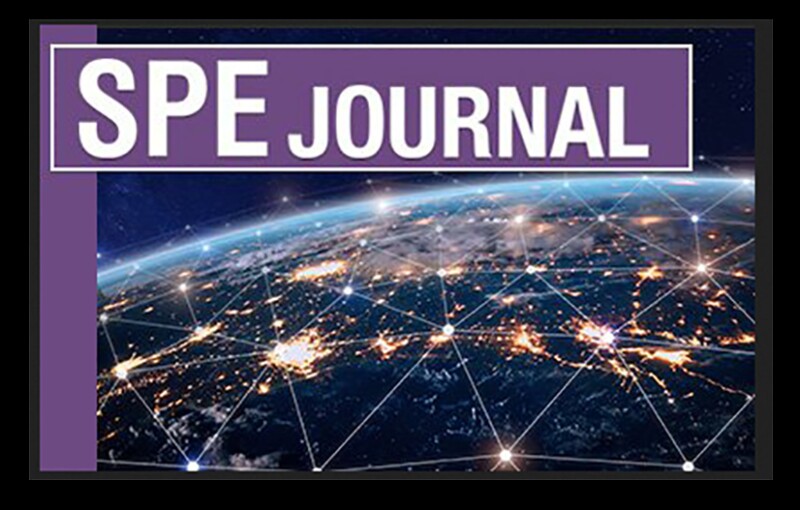Birol Dindoruk, Editor in Chief, SPE Peer-Reviewed Journals
At the January 2023 SPE Board Meeting, a proposal to consolidate SPE’s peer-reviewed journals into one all-encompassing journal was approved for implementation. With its first issue set to publish in January 2024, the newly expanded SPE Journal will include the theoretical research for which it has been historically known, the application aspects of petroleum engineering formerly covered by SPE Drilling & Completion, SPE Production & Operations, and SPE Reservoir Evaluation & Engineering, and expanded topics related to associated sciences and emerging technologies. This is an exciting advancement that will provide SPE the opportunity to continue its mission of disseminating technical information across a global community while remaining open to new and expanding developments in all aspects of the oil and gas industry.
Since its inception in 1996, SPE Journal has grown into SPE’s flagship journal. It has the highest impact factor (currently 3.602) and highest volume of papers of the four journals, publishing between 30 and 50 papers on a bimonthly basis. While our current journal portfolio has served as a foundational resource for the SPE community for decades, advances in digital publication and an improved reader experience on OnePetro make this the right time to build a single, robust journal footprint that will provide ease of access to both authors and readers and catapult the journal to next-level impact.
Under the expanded journal, the existing editorial boards from each journal will combine into one editorial board with an editor in chief, seven executive editors, and more than 100 associate editors. All current editors will continue to serve under the new journal. Existing technical disciplines—drilling, completion, production, operations, reservoir engineering, and formation evaluation—will be covered along with new and emerging concepts that include but are not limited to energy transition, sustainability, and data science.
SPE Journal is not stepping away from traditional oil and gas research, but we are expanding the scope to include new ideas. Further, the single journal platform will reduce redundancies and competition between journals and allow for growth with the industry as changes occur in the research landscape. Other benefits include simplified access to SPE’s complete range of technical content (including special issues) on OnePetro, elevated reputation within scholarly publishing, faster time to publication with monthly issues, and increased opportunities for authors to publish under the expanded scope of the journal and introduction of special article types. We will publish 40–45 papers per month in the new journal and expect that number to grow. Overall, there will not be any impact on the content that is covered currently in our peer-reviewed journal portfolio.
The new SPE Journal will cover the fundamental research and practical aspects of subsurface energy resources for sustainable oil and gas exploration and production while broadening its focus on circular carbon economy, energy transition, and alternative/renewable energy sources. It will involve novel theories, emerging concepts, fundamental/applied research and development, invited review papers, case histories, and field application studies spanning across all domains of petroleum/subsurface science and engineering. In addition to the existing technical disciplines (reservoir, drilling, production and facilities, data science and engineering analytics, etc.), the journal will cover rock physics, geology, geophysics, geochemistry, geomechanics, numerical simulation and modeling, injection/production facilities, oilfield chemistry, water treatment, carbon capture, utilization, and storage (CCUS), hydrogen transport and storage, geothermal energy, digitalization, artificial intelligence, data analytics, economics, health, safety, environment, sustainability, and other special topics of current interest. With this broadened view, we will look at the entire subsurface as an asset that can be utilized for multiple purposes currently and in the future.
SPE has already begun the consolidation process. Members, subscribers, and authors are encouraged to visit the Journal Consolidation page to learn more about the process and receive up‑to-date information on the steps that are being taken to achieve this goal. SPE is committed to maintaining the historical integrity of its peer-reviewed journals while ensuring that all authors are provided with an inclusive, fair, and positive experience in peer review.

Birol Dindoruk, SPE, is the editor in chief of SPE’s peer-reviewed journals. He is currently the American Association of Drilling Engineers Endowed Professor of Petroleum Engineering at the University of Houston, having previously been the chief scientist of reservoir physics and the principal technical expert of reservoir engineering at Shell.
He is well-known for his extensive work on thermodynamics of phase behavior/EOS development and experimental work, interaction of phase behavior and flow in porous media, enhanced oil recovery and CO2 sequestration, and correlative methodologies. Recently, he has also been working on data analytics, artificial intelligence, and machine learning, with a focus on effective incorporation of data sciences into oil and natural gas industry practices and energy systems.
Dindoruk has 28 years of industrial experience. He holds a BSc degree in petroleum engineering from Technical University of Istanbul, an MSc degree in petroleum engineering from The University of Alabama, a PhD in petroleum engineering and mathematics from Stanford University, and an MBA from the University of Houston. His technical contributions have been acknowledged with many awards during his career, including SPE Lester C. Uren Award (2014), Cedric K. Ferguson Medal (1994), and SPE Distinguished Membership. In 2017, he was elected as a member of the National Academy of Engineering for his significant theoretical and practical contributions to enhanced oil recovery and CO2 sequestration. He was an SPE Distinguished Lecturer during the 2010–2011 season, served as SPE Data Science and Engineering Analytics technical director, and served as a member of the Advisory Committee of the SPE Reservoir Dynamics and Description technical discipline. He has been active in various editorial positions with SPE and editor in chief positions in Elsevier.

